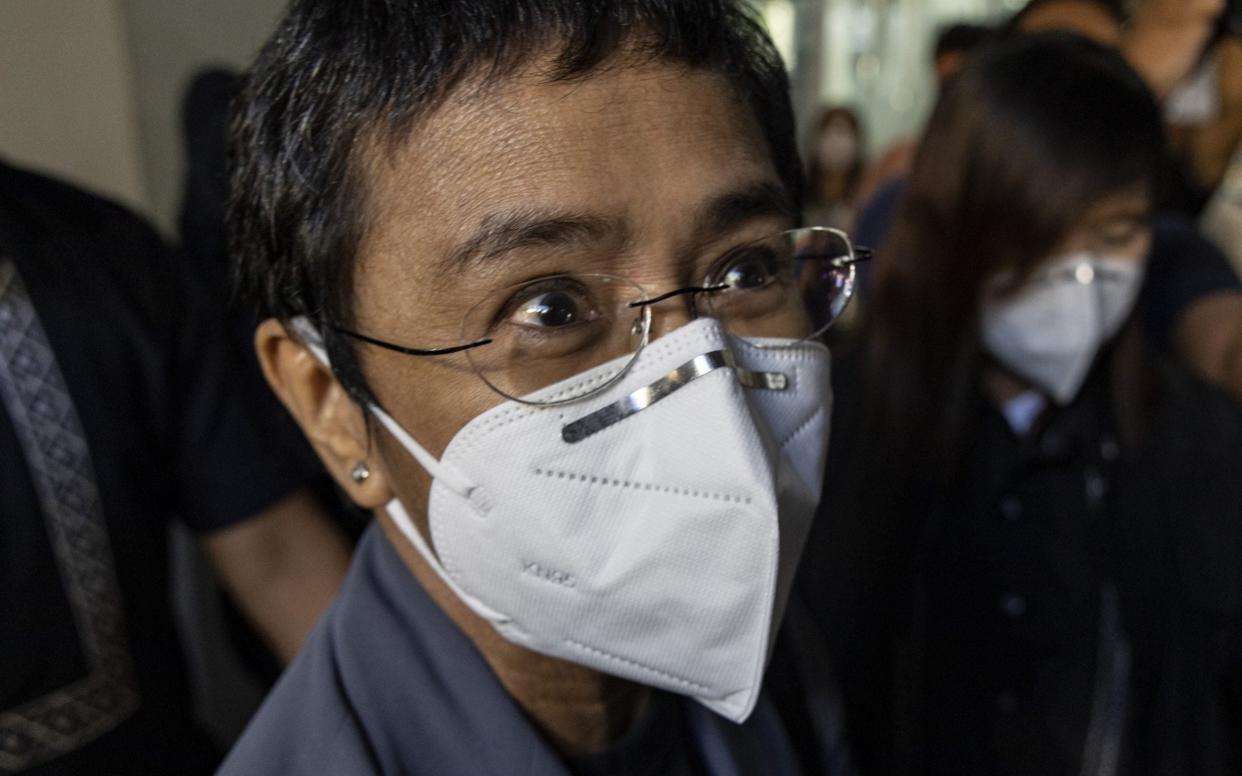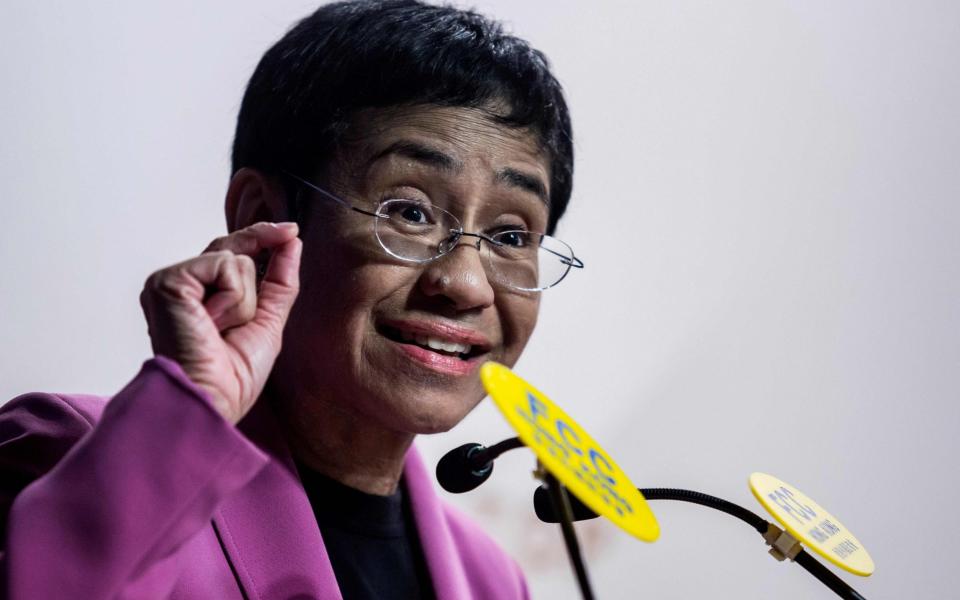Leading Philippine journalist found guilty in controversial cyber libel trial

One of the Philippines most prominent journalists has been found guilty of cyber libel charges, in a verdict widely viewed as a test of press freedoms and attempt to silence government critics.
The ruling, which can be appealed, could lead to six years in prison for Maria Ressa, the editor of Rappler, one of the country’s most influential news sites, which has reported extensively on the brutal realities of a drugs war waged by Rodrigo Duterte, the Philippine president.
The verdict was issued by Judge Rainelda Estacio-Montesa in the Philippine capital, Manila, on Monday morning on a case that stems from a businessman's 2017 complaint over a Rappler story five years earlier about his alleged ties to a then-judge on the nation's top court.
Ms Ressa did not write the article and government investigators initially dismissed the businessman's allegation, but state prosecutors later filed charges against her under a controversial cyber crime statute that took effect in September 2012, months after the story was published.
Reynaldo Santos Jr, a former writer for Rappler, was also convicted. Both have been released on bail pending appeal.

In a press conference following the verdict, Ms Ressa vowed to fight the verdict, calling the case "a cautionary tale" for the Philippine media.
“The decision for me is devastating because it says that Rappler is wrong,” she said in a news conference after the ruling. She appealed to journalists and Filipinos to continue fighting for their rights “and hold power to account.”
In an interview with ABS-CBN over the weekend, she accused the government of doing "legal acrobatics" to get the case to court. "We have done nothing wrong," she said.
As she walked into the court room early on Monday morning, she told the BBC: “This verdict has an impact on press freedom, not only in the Philippines but all around the world. The quality of our democracy is at stake.”
Human rights activists have warned the trial is intended to have a chilling effect on the media in the Southeast Asian nation.
Rappler has consistently run content critical of President Duterte and his administration, publishing detailed investigations into extrajudicial killings of the poor and marginalised that have often allegedly been linked to the authorities and their violent campaign against drugs.
Ms Ressa in particular has been hounded by the authorities, with eight active cases filed against her and her media organisation since President Duterte came to power in 2016, including alleged tax evasion and media foreign ownership violation. If convicted of all, she could face decades in prison.

Media freedoms have come under repeated assault since Mr Duterte took power. Last month, the country’s biggest broadcaster, ABS-CBN, was forced off air by a cease-and-desist order that was widely condemned as attempt to crush media dissent.
Human Rights Watch said that the campaign against Rappler was occurring in the context of worsening media freedom and freedom of expression in the Philippines.
Journalists from other media groups had suffered intimidation and attacks on and offline, it said in a statement, adding that social media users critical of the government were also being targeted, with several arrested for violating the country’s “fake news” regulations during the Covid-19 pandemic.
“The government should reverse this alarming affront to justice and quash the convictions of Rappler’s Ressa and Santos,” said Phil Robertson, HRW’s deputy Asia director.
“The prosecution was not just an attack on these individual journalists, but also a frontal assault on freedom of the press which is critical to protect and preserve Philippines democracy.”
Earlier this year, Reporters Without Borders ranked the Philippines 136th among 180 countries in the World Press Freedom Index, citing the Rappler case and the targeting of the Philippine Daily Inquirer by the Duterte administration. Its report pointed to “state troll armies [that] use the weapon of disinformation on social media.”
Ahead of the trial, Amnesty International accused the government of pursuing Ms Ressa and Rappler on “politically motivated” grounds.
“The organisation calls on the Philippine authorities to immediately halt its crackdown on media freedom, journalists, and critics of President Rodrigo Duterte’s administration and its deadly 'war on drugs',” it said in a statement.
“The authorities must allow journalists and independent media houses to freely operate and carry out their work without any threats, intimidation and harassment.”
Good morning from Manila! "I learned from experience that joy does not reside in the things about us, but in the very depths of the soul, that one can have it in the gloom of a dungeon as well as in the palace of a king." St. Therèse of Lisieux
— Maria Ressa (@mariaressa) June 14, 2020
President Duterte has denied the case is politically motivated and has dismissed Rappler as fake news. His spokesman on Monday said the court verdict should be respected.
But Ms Ressa’s stand against corruption and human rights abuses in the face of threats and intimidation has resonated around the world.
Agnes Callamard, the UN special rapporteur on extra-judicial executions, praised the editor for “her courage and her fight for press freedom: a model for the world”, adding that she was “appalled, angry” at the verdict.
Ms Ressa has thanked her supporters but indicated she is bracing for the worst. Hours before her trial she tweeted the words of St Therese of Lisieux, an 18th century French nun.
“I learned from experience that joy does not resident in the things about us, but in the very depths of the soul, that one can have it in the gloom of a dungeon as well as in the palace of a king.”

 Yahoo News
Yahoo News 
